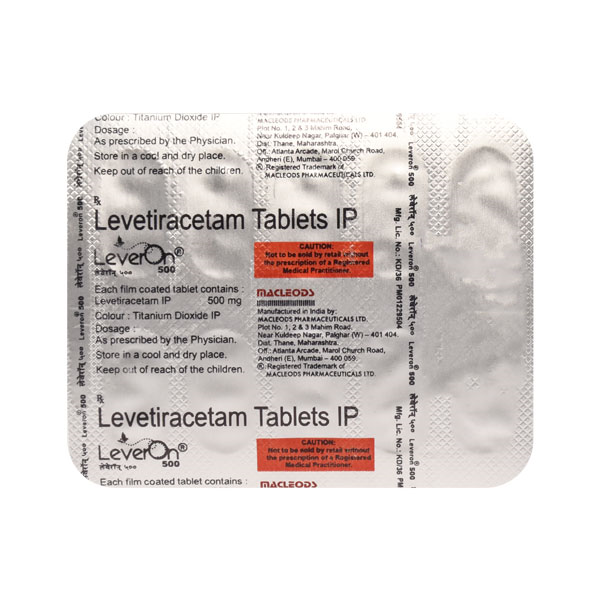Description
Leveron Tablet contains Levetiracetam. It is used to treat epilepsy (fits). It can be used on its own or in combination with other medications. It works to prevent seizures as long as you keep taking
it. This medicine should be taken as directed by the doctor and in doses and duration as prescribed. Before starting this medicine, inform the doctor if you are pregnant, planning a pregnancy or breastfeeding and about your detailed medical history.
Uses
Works
Levetiracetam works by reducing abnormal electrical activity in the brain to help control seizures. It binds to a protein called synaptic vesicle protein 2A (SV2A), which is involved in the release of neurotransmitters (chemical messengers) between nerve cells. By modifying this process, levetiracetam helps stabilize brain activity and prevent seizures.
How to use
- Take this medicine twice daily (as prescribed)
- It can be taken with or without food
- Swallow the medicine with a glass of water; do not crush or chew
- Take the medicine at the same times each day for consistent blood levels
- Follow doctor’s dosage instructions and any adjustments.
- Do not stop abruptly without medical advice to avoid seizure risk.
Side Effects
Common side effects
- inflammation of the nose and throat, respiratory problems, cough
- somnolence, headache
- depression, aggression, anxiety, insomnia, nervousness, irritability
- balance disorder
- dizziness, tiredness
- tremor (involuntary trembling), forgetfulness,
- vertigo (sensation of rotation or spinning)
- abdominal pain, diarrhoea, indigestion, vomiting, nausea, loss of appetite
- changes in body weight
- tingling and numbness
- hair loss
Stop taking this medicine and inform your doctor immediately if you experience any of the following side effects:
- signs of sudden decrease of kidney function (low urine volume, tiredness, nausea, vomiting, confusion, and swelling in the legs, ankles, or feet)
- signs of serious mental changes that can be symptoms of encephalopathy (confusion, sleepiness, loss of memory, forgetfulness, abnormal behaviour, involuntary or uncontrolled movements)
- abnormal thoughts, feeling irritable, or reacting more aggressively
- aggravation (worsening) of epilepsy













Reviews
There are no reviews yet.